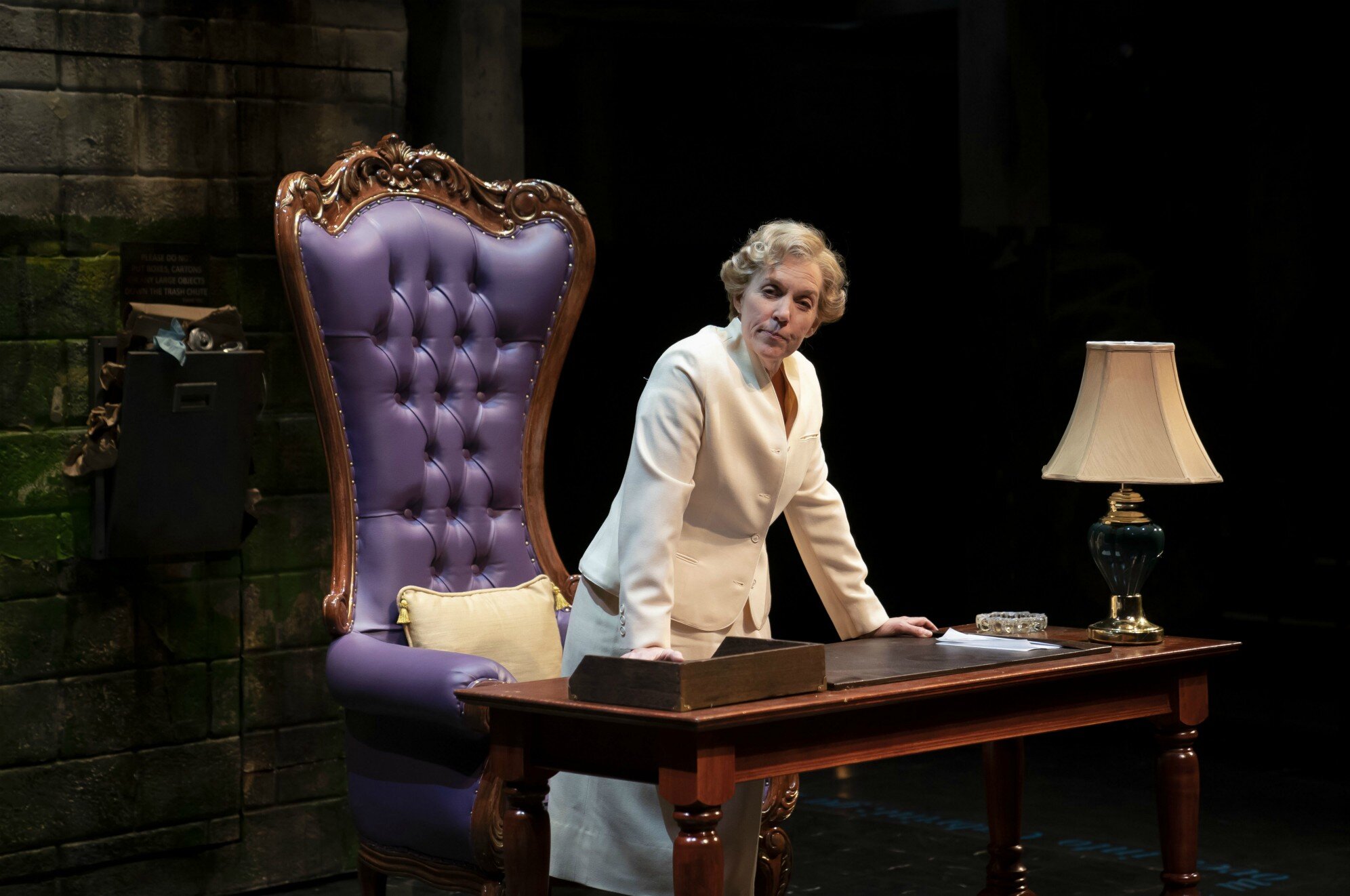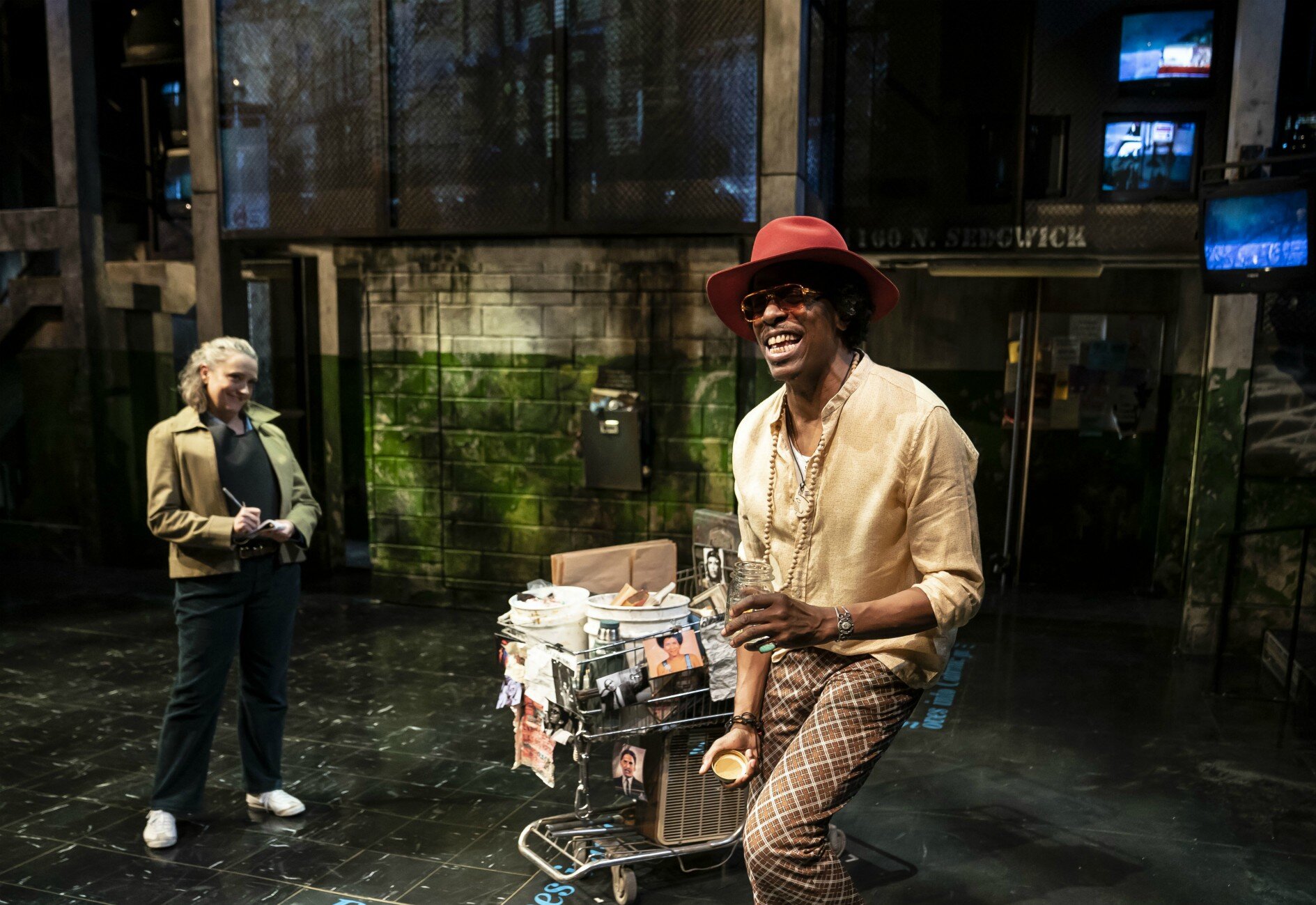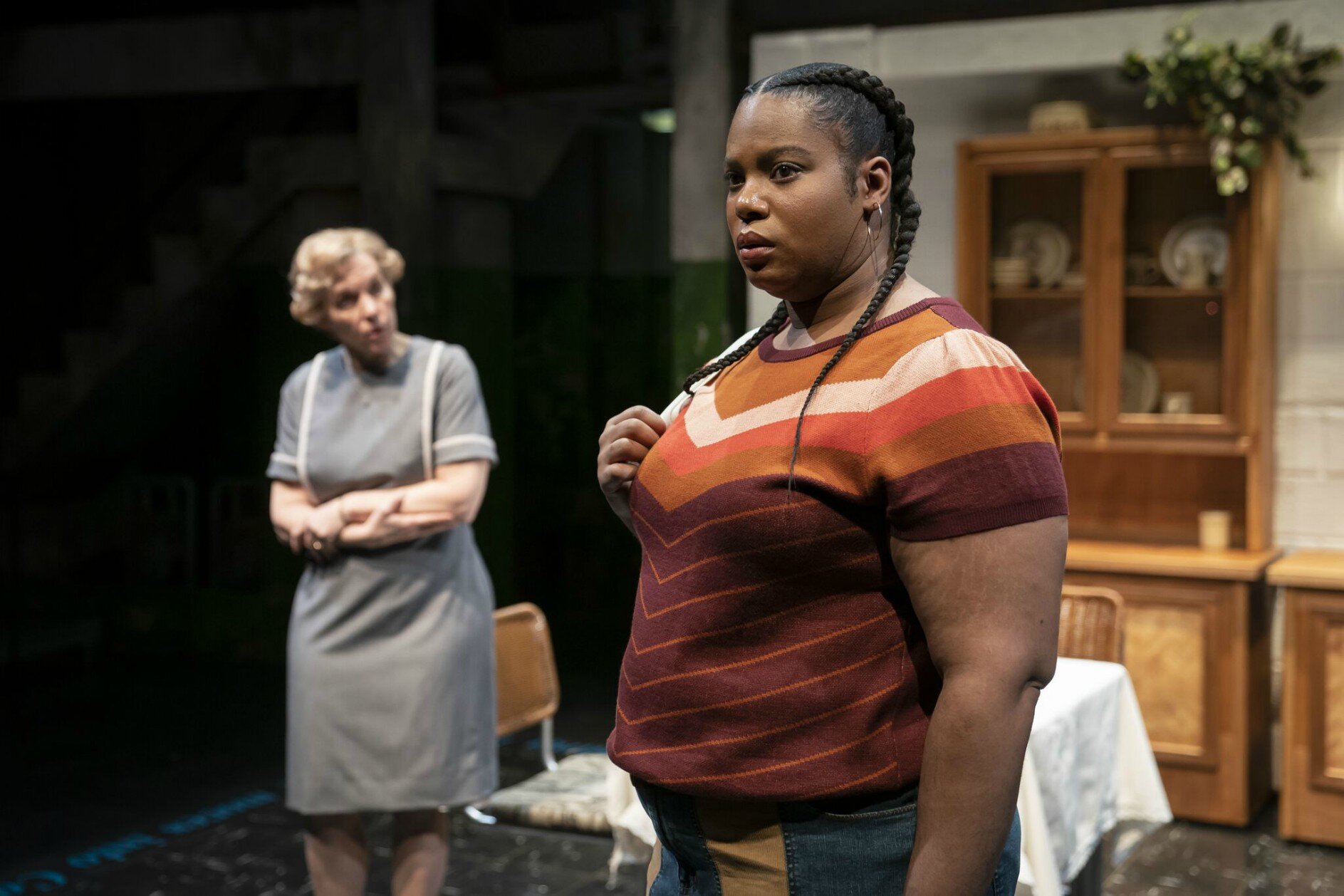PicksInSix Review: HER HONOR JANE BYRNE Lookingglass Theatre Company
“You Can’t Kill a Revolution.”
Christine Mary Dunford brings to life Chicago’s first female mayor, Jayne Byrne, in the Lookingglass Theater Company world premiere production of “Her Honor Jane Byrne,” now playing at the historic Water Tower Water Works. The play isolates the three-week period in 1981 when the mayor moved into Cabrini-Green after an eruption of gang violence that left 10 dead and 37 wounded. It frames a much broader examination of the tumultuous social, political and racial history of the area in the decades that preceded those three weeks. Whether or not Byrne’s action amounted to anything more than a publicity stunt depends upon your point of view. However, after experiencing the complexity of playwright, director and Lookingglass ensemble member J. Nicole Brooks’s multi-faceted and engaging new work, you will have a better understanding of the issues in play at the time—a volatile period of race relations in Chicago and across America that very much reflects forward to the times in which we live.
Based on actual events, with the major issues embodied in actions of multiple real people and composite characters, the play swirls around the mayor and her husband, Jay McMullen (Frank Nall), and unfolds in their apartment in the projects, on the streets and at City Hall offices. The small cluster of characters who tell their story, which serve as multiple interwoven tracks, are the longtime resident Black Che (Robert Cornelius), who befriends a reporter (Tracy Walsh) covering urban violence and its effect on children; Tiger (Nicole Michelle Haskins), a young woman trying to raise herself up from her own situation; the activist Marion Stamps (Taron Patton), who collaborated with Black Panther Party Chairman Fred Hampton; and Mabel Foley (Renee Lockett), a grandmother who fears for the safety of her grandson (Willie “Mudlife Roc” Round); as well as the Chicago political machine that includes, among others, First Ward Alderman Fred Roti (Thomas J. Cox) and Superintendent Brzczek (Josh Odor).
Che serves as narrator of the legacy of Cabrini-Green, recalling a vibrant neighborhood that became a political orphan, whose residents have been dominated by organized crime and street gangs and persecuted by corrupt officials and law enforcement for decades. By 1981, with gang violence operating at will and police oversight nonexistent, Byrne, determined to disrupt the system, fires the precinct captain, bolsters city services in the area, and uses her influence and the power of the mayor’s office in an attempt to effect change.
Byrne succeeded in attracting media attention and minor improvements, but there was virtually no long-lasting impact, as evidenced in the fateful storyline of Foley’s family and through Stamps’s defiance, which led to a violent protest during an ill-conceived Easter celebration. This is gripping drama, with glimpses of Byrne haunted by the tragic death of her first husband, which is mirrored in the loss of Che’s brother and, ultimately, in the stark, tragic and pointless murder that unfolds on the streets. Grief and loss, it seems, have no social, ethical or racial boundaries.
Yu Shibagaki’s gritty scenic design—with its open brick and concrete landscape and a massive tech wall (projections by Rasean Davonte Johnson) that serves many uses—provides stunning cultural context for the period, together with the creative resources of lighting designer Christine A. Binder, sound designer Christopher M. LaPorte and costume designer Mieka Van der Ploeg.
The scars of Cabrini-Green’s political corruption, racial unrest and distrust in law enforcement blistered future generations. Even if its landscape is stripped, erased and gentrified, its prolific gangs have relocated to other neighborhoods and have multiplied across the city over the last 40 years. Very little progress seems to have been made in narrowing the economic and ethnic divide. However, with “Her Honor Jane Byrne,” the door has been cracked open to allow us to see many sides of the complex urban equation—an equation we’ll likely see again with Brooks in the next installment of “The Chicago Mayoral Saga,” which focuses on the administration of Harold Washington.
Please Note: This is the pre-pandemic review posted March 11, 2020.
PHOTOS|Liz Lauren
LOOKINGGLASS THEATRE COMPANY
presents
Her Honor Jane Byrne
through April 12, 2020
Water Tower Water Works
821 N. Michigan Avenue
WEBSITE
TICKETS
For more reviews, visit: Theatre In Chicago












